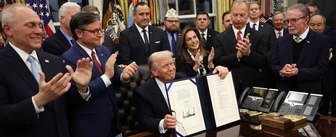His level of support nationwide is also at a high-water mark
Winning elections helps. Donald Trump has become an even more formidable frontrunner among Republican primary voters in the latest Economist/YouGov Poll, conducted in the weekend following his convincing wins in South Carolina and Nevada. Three in four of those voters now expect that Trump will be their party’s nominee this July, an increase of 23 points in the last two weeks.
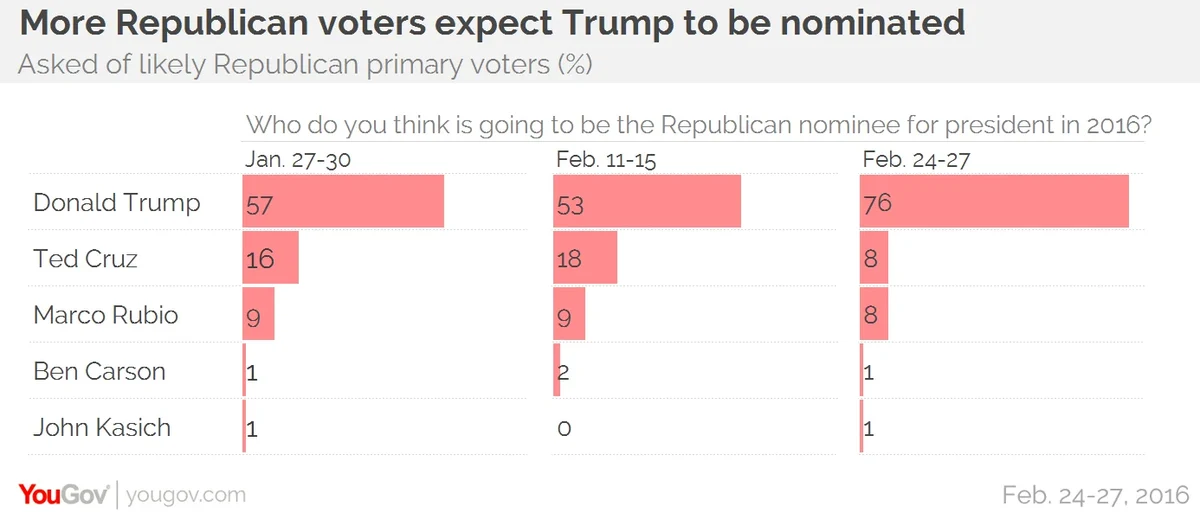
Trump is the only remaining Republican candidate that a majority of the public believes could win the general election. 63% of all Americans believe he could win in November, including 84% of Republican voters. Fewer Republican primary voters, though still majorities, see Florida Senator Marco Rubio and Texas Senator Ted Cruz as conceivable general election winners. But under half the public overall agrees.
This poll was in the field while Republicans were holding their most recent debate, so the impact of that debate would have been felt by only some of the respondents. But one candidate appears especially to have suffered from an increasingly rancorous campaign. Cruz, while remaining a distant second to Trump in presidential preference, is getting criticized – even by Republican voters – for the nature of his campaign, which has been charged with spreading rumors about other candidates, and using unfair tactics. Only 37% of Republican primary voters believe Cruz has been running a fair campaign. Nearly half say his campaign has been dirty – making him the only remaining GOP candidate whose campaign tactics are seen as negative.
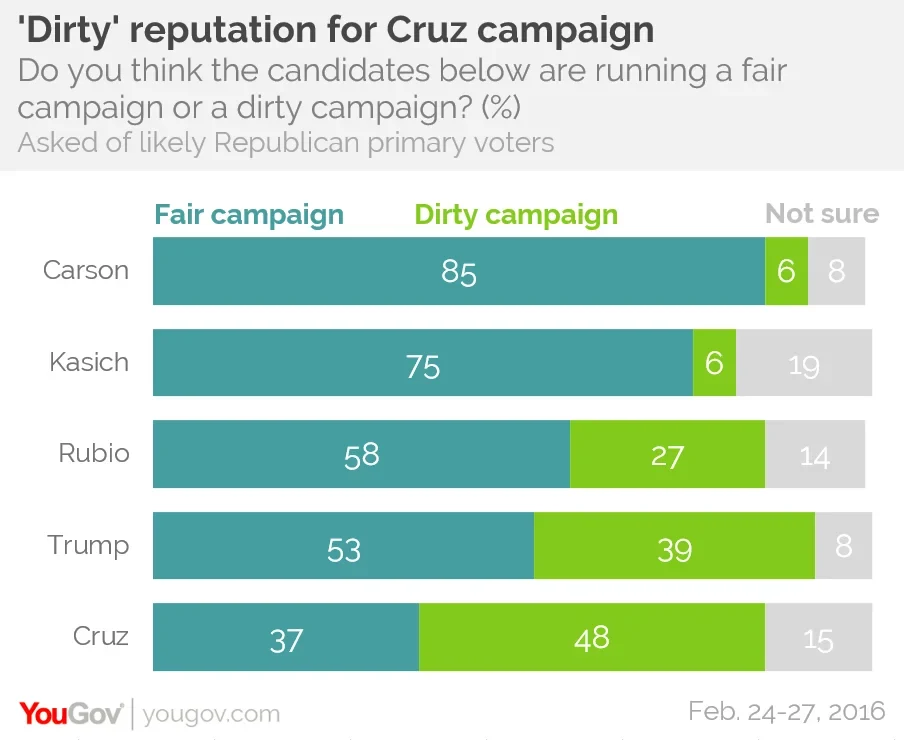
More than a third criticize Trump’s campaign, but a majority still think Trump is running a fair campaign.
Cruz has also been accused of lying – especially by Donald Trump. That criticism also has taken a toll. Less than half of GOP voters now say Cruz is “honest and trustworthy,” down nine points in the last two weeks. The percentage who describe Cruz as not “honest and trustworthy” has jumped eleven points in the same period.
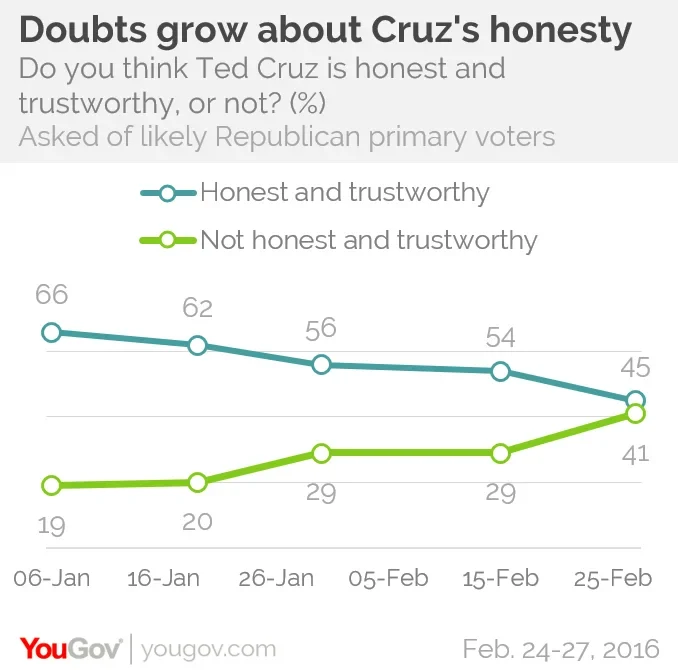
Majorities of Republican voters agree that each of their party’s other candidates is honest and trustworthy, though the percentages vary greatly. Just 52% say this about Trump and 55% say this about Rubio, while 64% believe Ohio Governor John Kasich is honest and trustworthy (a jump of ten points in the last two weeks) and 77% believe this about retired neurosurgeon Ben Carson.
32% of Republican voters say they most value honesty and trustworthiness in a candidate. Trump leads in this group by about the same margin as he does overall. Among all Republican voters Trump remains clearly in front, though he has not amassed a majority of GOP support.
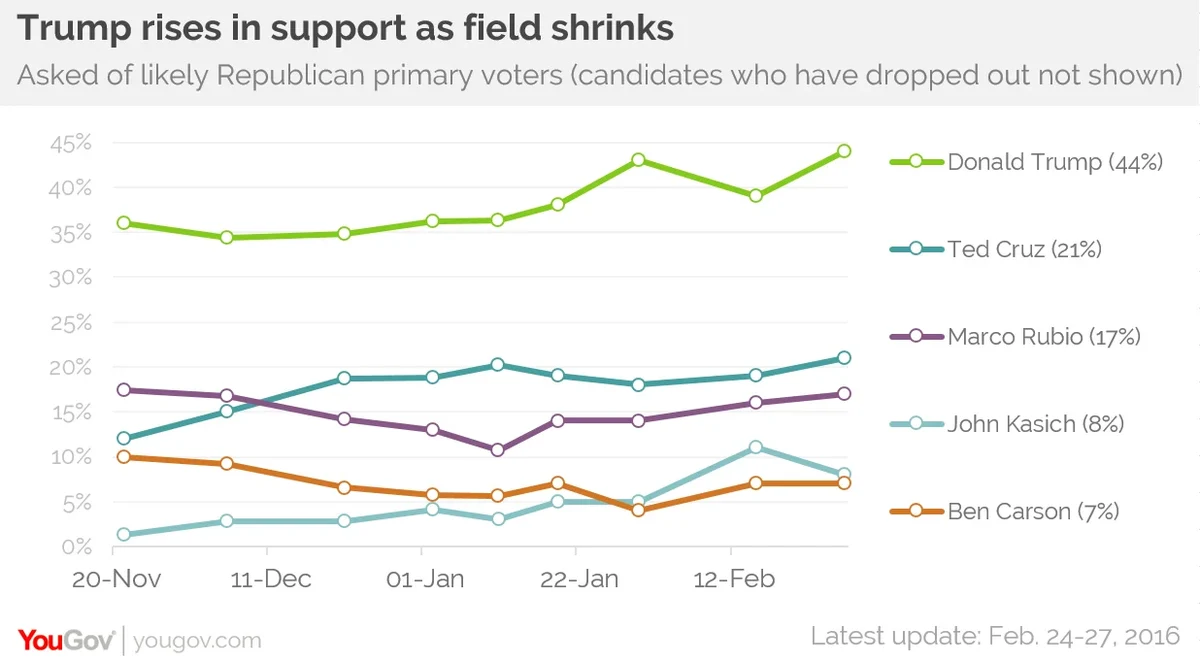
As candidates have dropped out, Trump may have gained the most. His first-choice support rose five points. He does well across the country, including the South, where most of Tuesday’s delegates will be decided. Trump also leads among the 75% of Republican voters who call themselves conservatives, though Cruz has an edge with those who consider themselves “very conservative.” Cruz and Trump divide the vote of the 40% of Republican primary voters who say they are “born-again,” while Trump is well ahead of those who do not. And more of those born-again voters think Cruz is “honest and trustworthy” than say that about Trump.
Trump holds a convincing lead over Cruz when it comes to policy perceptions. More Republican voters trust Trump to handle immigration and the economy (two of the top three issues for Republican voters – terrorism is the third) than say that about Cruz or about Rubio, who is third in GOP presidential preference. Trump has a smaller edge when it comes to serving as Commander-in-Chief.
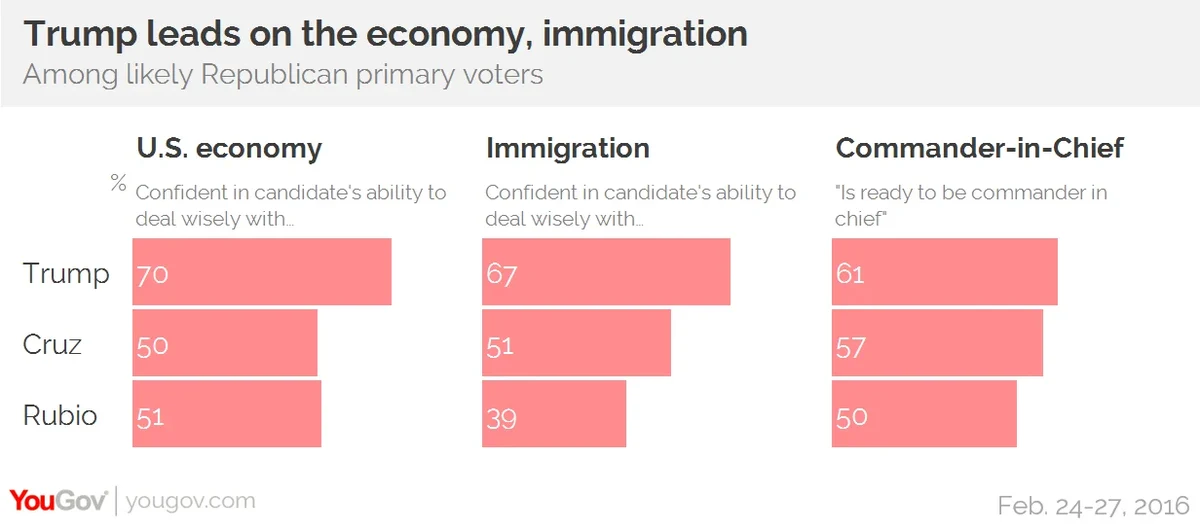
Republican voters expect that the nomination will be decided before the July Republican Convention, and that’s definitely something they would like to see happen. By more than three to one, they believe it will be better for the party to have a nominee before the party convention, and 58% think that they will have one.
See the Economist/YouGov results
Economist/YouGov poll archives can be found here.
PA image









